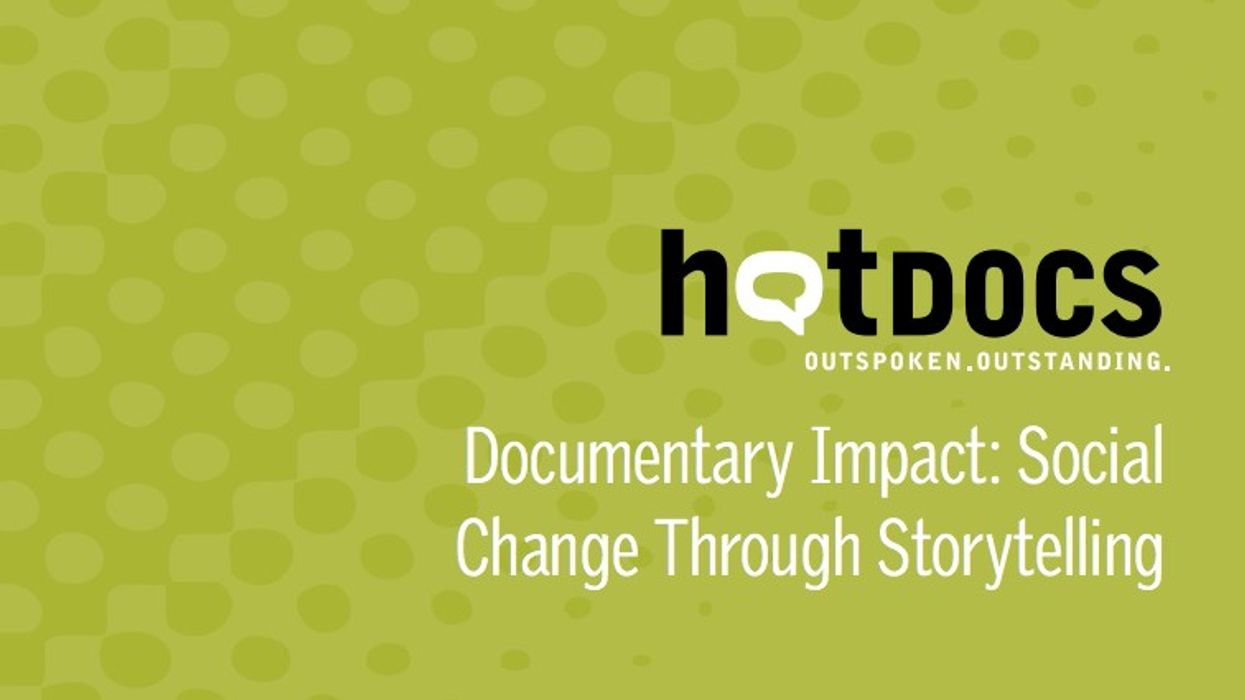Do Activist Documentaries Really Make a Difference? Hot Docs Weighs in with This Report

Do documentaries that focus on pressing issues of our time have any quantifiable impact on those issues? On one side of the debate, you have those who think the sole purpose of documentary should be to affect change. On the other, there are those who think advocacy docs are more propaganda than art. And then there's everyone in between. Hot Docs, one of the largest documentary film festivals in the world, just released their 2014 Report on the issue titled Documentary Impact: Social Change Through Storytelling entailing their findings. What do you think?
Hot Docs' 2014 Impact Report (which you can read in its entirety here) starts with a quote from documentary icon of Grey Gardens and Salesman fame, Albert Maysles:
I think it’s inevitable that people will come to find the documentary a more compelling and more important kind of film than fiction. Just as in literature, as the taste has moved from fiction to nonfiction, I think it’s going to happen in film as well.
Well, that's already enough to start a heated debate! The report features 28 pages on the impact of documentary in 2014 and profiles five successful documentaries: Bully, Tales From the Organ Trade, Herman's House, The Invisible War, and How to Survive a Plague. The report terms the new sector of the film industry dedicated to creating social impact films as the "impact space" and defines levels of impact in this infographic:
Each case study is organized by the film's goals, strategies, and outcomes. As you can see with the report's breakdown of The Invisible War, Kirby Dick's film about the epidemic of rape in the military, there is certainly good evidence for this documentary to have been a successful catalyst for change:
Goals of The Invisible War
- Raise awareness about the epidemic of rape in the US military in the public and in the media.
- Change policy: Take rape cases outside the Chain of Command in the military.
- Support survivors of military sexual assault.
Outcomes
- The Pentagon, high-level military officials and top staff in the Obama administration have seen the film.
- The film is now used as a training tool for military personnel.
- nearly one million members of the US armed services have seen the film.
- Mass media coverage: The filmmakers have appeared on dozens of media outlets, including a special hour with Katie Couric.
- Mainstream television series, including House of Cards and Law & Order: SVU, have adopted story lines influenced by the film, as has the comic strip Doonesbury.
- Policy/legal: MOre than 20 pieces of legislation have been introduced in US Congress, with major legislation still pending.
Of course, films like The Invisible War, that actually result in laws being changed, aren't average results -- it's definitely a best-case-scenario. There are no case studies in the report of unsuccessful documentaries that failed to have an impact on their targeted issue, which is too bad because it would be great to read about why such docs failed.
Do you think that Al Maysles is right about documentary beginning to outgrow fiction? If that were true, what do we think about the growing role of social impact documentaries in the "impact space"? And finally, are you a believer or a skeptic when it comes to social change documentaries?
Link: Documentary Impact: Social Change Through Documentary -- Hot Docs 2014 Report












